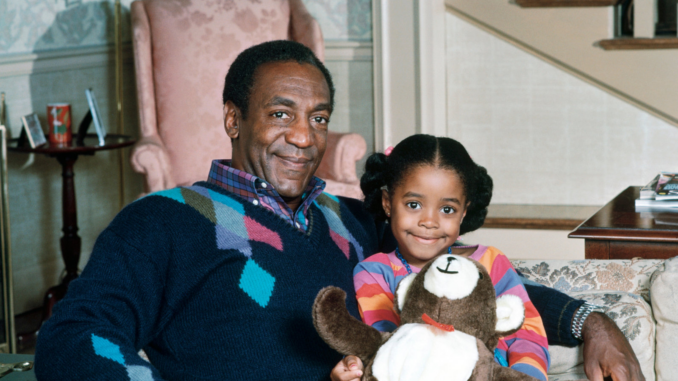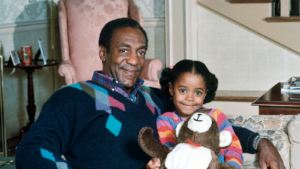
As The Cosby Show approaches its 40th anniversary, Keshia Knight Pulliam, who portrayed the beloved Rudy Huxtable, reflects on the show’s enduring cultural impact—despite the controversies surrounding its creator, Bill Cosby. For nearly a decade, the sitcom was a cornerstone of American television, celebrated for its portrayal of an upper-middle-class Black family full of love, integrity, and humor.
While the conversation surrounding Bill Cosby has been marred by allegations of sexual misconduct and assault, Pulliam firmly believes that the groundbreaking nature of the show remains relevant and significant.
“You can’t take away the work we all collectively did,” Pulliam, 44, told PEOPLE exclusively. She speaks not only for herself but for her co-stars, including Phylicia Rashad, Malcolm-Jamal Warner, and Lisa Bonet. Together, they created a show that defied stereotypes and reshaped the portrayal of Black families on television in the ’80s and ’90s.
Pulliam, now a successful television host and advocate, continues to honor the lasting legacy of the show. “It was bigger than one person,” she emphasizes, underscoring the collective talent and hard work that brought The Cosby Show to life.
While Cosby’s legal battles—culminating in a conviction for aggravated indecent assault in 2018—remain a painful chapter in the show’s history, Pulliam says that the cultural importance of The Cosby Show should not be overshadowed. “The work still stands, and I hope it continues to be celebrated for what it did for television,” she says.
The impact of The Cosby Show stretches far beyond its original run. It reshaped how Black families were portrayed in the media, setting the stage for future hits like The Fresh Prince of Bel-Air and Black-ish. For Pulliam, being a part of such a transformative project was a rare gift, one that many actors spend their entire careers hoping for. “A lot of actors wait their whole lives for an opportunity like that,” she reflects. “I’m grateful to have been part of something that’s still teaching lessons that are relevant today.”
Pulliam’s gratitude is personal as well as professional. She shares that her 5-year-old daughter, Ella Grace, now watches The Cosby Show and enjoys the same timeless lessons of family, love, and perseverance. “It’s funny because she looks so much like me,” Pulliam says with a smile, noting the full-circle moment of her own daughter experiencing the show that made her a household name.

As for plans to mark the 40th anniversary of The Cosby Show next year, Pulliam says there are no official celebrations on the horizon—yet. “Nothing is in the works or being discussed right now,” she admits, leaving the door open for future tributes.
Though The Cosby Show’s history is undeniably complicated, Pulliam’s sentiments remind us of the show’s significant contribution to American television. It was more than just entertainment—it was a beacon of change, a testament to the power of storytelling, and an enduring symbol of Black excellence.
